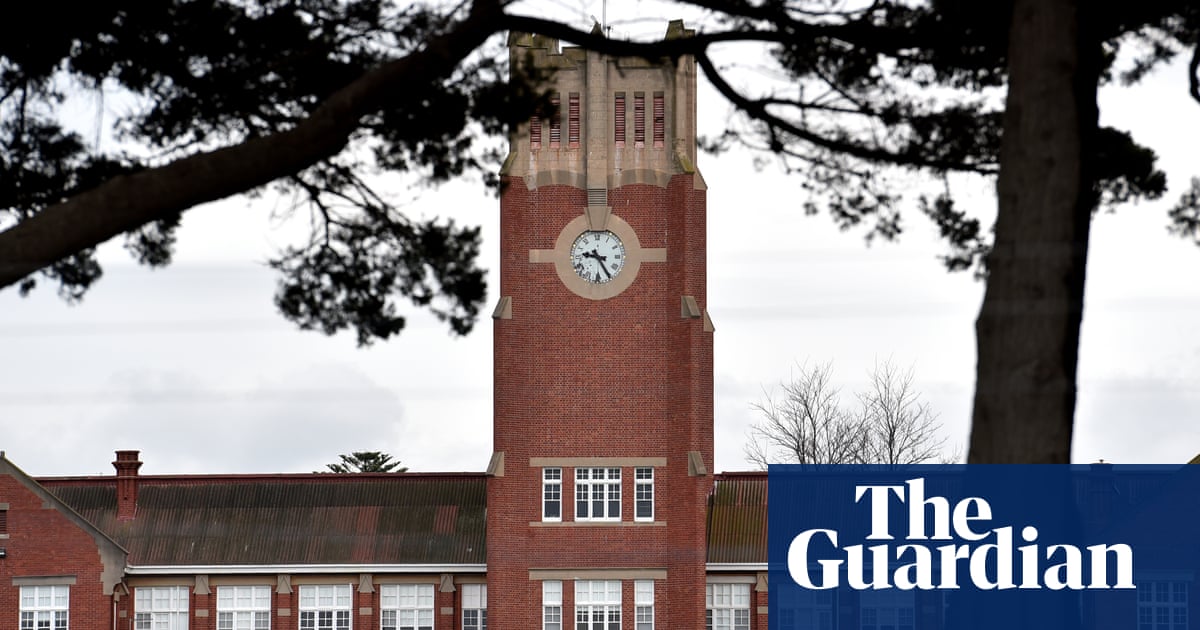The Albanese government has been urged to end an “outrageous” and “cruel joke” that incentivises donations to Australia’s richest private schools in return for a tax deduction.
But the peak body for independent schools says the criticism is overblown and that tax-deductibility is “essential” to build campus infrastructure, with 95% of capital expenditure funded through parent contributions, fundraising, loans and philanthropy.
Analysis of federal government data by the campaign group Save OurSchoolshas found that more than $106m was donated to 60 private schools in 2023. Some of these donations were considered tax deductible gifts to charities, provided the money was designated for campus buildings.
Some tax experts and analysts believe this concession – which is not extended to all charities andhas been criticised by the Productivity Commission– has exacerbated inequality in the education system and added to the largesse of exclusive schools.
The analysis revealed dozens of private schools received donation totalling more than $2m in 2023, in addition to substantial revenue from investments and property portfolios, and funding from government.
Sign up for Guardian Australia’s breaking news email
“It is a cruel joke that taxpayers who could never dream of sending their own kids to such superbly well-resourced schools are indirectly subsidising those that can,” said Matthew Wade, a sociologist at La Trobe University who has studied the scheme for years.
“We should all be offended by witnessing something so manifestly unfair continue unabated.”
Eleven private schools received more than $3m from donors in 2023, topped by St Aloysius’ College, in Kirribilli, which collected $9.1m for bursaries and major building works from donation campaigns.
Melbourne Grammar School received $5.9m in donations, followed by the Scots College in Sydney ($4m) and Xavier College in Melbourne ($3.9m).
Years of philanthropy has helped fund major building projects at these schools, including a sculpture walk, a rooftop playground with Sydney Harbour views, and expansive aquatic and sports centres.
Prof Ann O’Connell, a tax expert at the University of Melbourne, said “the tax concession for gifts to school building funds is outrageous”.
“It dates from a time when it was difficult for the commonwealth to make grants to non-government schools,” O’Connell said.
But Graham Catt, the chief executive of Independent Schools Australia, thepeak body for the sector, said tax-deductibility for school building donations was “not just fair – it’s essential”.
“If anything, this is about private families picking up the bill where government support falls short,” Catt said. “The lion’s share of government capital grants still flows to public schools.“Philanthropy plays a vital role across the independent school sector not just in funding buildings, but in enabling life-changing opportunities for students.”
Sign up toAfternoon Update
Our Australian afternoon update breaks down the key stories of the day, telling you what’s happening and why it matters
after newsletter promotion
Catt said donations to private schools have supported scholarships and bursaries that help families facing financial hardship, including Aboriginal and Torres Strait Islander students.
Jason Ward, an analyst with the Centre for International CorporateTaxAccountability and Research, said it was “ludicrous that donations to these elite private schools, with family median incomes ranging between $225k and $495k, should be tax deductible”.
“On top of that, these well endowed schools with high fees and their own income sources are getting more than $580m in annual government funding, while the state public school systems are struggling with higher rates of teacher turnover and class sizes.”
But Catt said many of the buildings funded by donations – including science labs, libraries, outdoor learning areas, and multipurpose halls – benefited the broader local community.
“The benefits of philanthropy extend well beyond the school gate,” Catt said.
David Crosbie, the chief executive of the Community Council for Australia (CCA), said many small charities were unable to provide tax deductible status to donors “despite providing services to the community that provide a clear public benefit”.
“CCA believes there are many issues with the current deductive gift receipt system that need reform and private school building funds would be part of the reform,” Crosbie said.
Last year, the Albanese government declined to support the Productivity Commission’s recommendation that school building funds no longer be tax deductible.
The federal government was contacted for comment.
